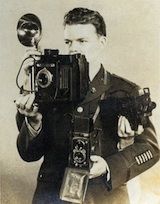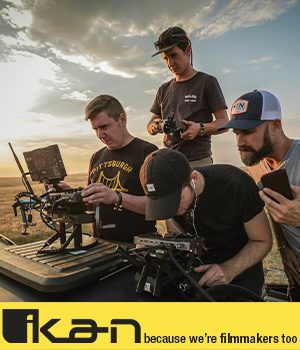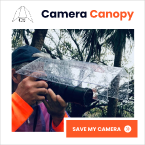- Forum
- General Discussion | Introductions | Off Topic Forum
- Photography General Discussion
- Full Frame SLRs...why or why not?
Full Frame SLRs...why or why not?
Post #71877
-

- Spin the world
- New Kid On The Block
-
- Sony a580
- Followers: 7
- Posts: 50
-
Points:
0
Post #71881
-

- MLKstudios
- Banned
-
- D800 ;-)
- Followers: 72
- Posts: 4480
-
Points:
2
Post #71883
Also, you should probably invest in good glass before upgrading a camera body. Makes no sense to put a "kit" lens on an expensive body.
Matthew
PS Spin's additional points are valid as well. It's a big step up from APS-C sensor cameras, but you need to upgrade everything else to go with it, including possibly a new PC (or more RAM) to handle larger files.
Matthew L Kees
MLK Studios Photography School
www.MLKstudios.com
[email protected]
"Every artist, was once an amateur"
-

- photobod
- Paparazzi
-
- Nikon D800 + D300
- Followers: 563
- Posts: 8907
-
Points:
150
Post #71889
MLKstudios wrote: Like all things photographic, you'll know yourself if and when you NEED one. That includes lenses, flashes, tripods and etc. Their advantage is the low light ability, or in Canon's case, more MP. It also affects the field of view of your lenses, but if you've never used a full frame film camera it doesn't matter.
Also, you should probably invest in good glass before upgrading a camera body. Makes no sense to put a "kit" lens on an expensive body.
Matthew
www.dcimages.org.uk
"A good photograph is one that communicate a fact, touches the heart, leaves the viewer a changed person for having seen it. It is, in a word, effective." - Irving Penn
-

- Henry Peach
- Apprentice
-
- I currently use a 5DII or Sony Nex-3 most of the time.
- Followers: 50
- Posts: 2925
-
Points:
16
Post #72659
Sometimes bigger is better. Most of the time it just depends on the real world situation. When Henri Cartier-Bresson switched to a small format tourist's camera (Leica) his professional peers scoffed. "That's no camera for real photographers!" they said. He ignored them, and went on to be called the father of modern photojournalism.
The larger sensors are more expensive to produce so the manufacturers put them in cameras with more expensive feature sets (i.e. "professional"). At some point the cost of making the larger sensors will come down, and maybe 35mm will go back to being the small format standard. We are starting to see some medium format digital camera prices dip into the range of the upper end 35mm DSLRS.
For any given sensor or film technology image quality can probably be improved by making the area bigger just because it allows for more photoreceptors or more silver grains. The question is whether the image quality improvement is worth the cost and gear size increase. We could all be getting ultimate quality shooting 16"x20" cameras, or even 8"x10", but they are too much of a pain in the butt and too expensive for most folks. Several times smaller film formats were introduced: half frame, 110, APS.... These were popular among folks who rarely printed larger than 4x6-ish.
I think that the bigger is always better mentality is wrong both in format size and megapixel count. For some photographers it is the right choice, but not for everyone. I started out using 8mp APS-C and now use 21mp 35mm. In my photographs it's easy to see the difference at high ISOs, and almost impossible at low ISOs. Looking at work from friends with more recent APS-C DSLRs even their high ISO stuff looks darn close to my 35mm camera.
Just worry about what works for you. IMO you'll probably take better photos with cheap gear that allows you to spend the savings on inspiring activities, than spending all your money collecting fancy cameras.
- Forum
- General Discussion | Introductions | Off Topic Forum
- Photography General Discussion
- Full Frame SLRs...why or why not?
Latest Reviews
The Canon EOS R100 is an entry-level mirrorless camera introduced in 2023. But just because it’s an entry-level camera doesn’t mean it’s a bare-bones camera. Find out why in this review!
Nikon’s retro-looking Nikon Zfc is anything but retro. Under its classic body is a host of features and amenities that make it a worthwhile compact mirrorless camera for 2024.
The Canon EOS R50 is one of the newest R-system cameras from Canon. Is it worth your money? Find out all the details you need to know in this comprehensive review.
The Sony FE 70-200mm f/2.8 GM OSS II is Sony’s flagship mirrorless zoom lens. As such, it’s loaded with features and has a top-shelf build quality that makes it a top pick!
Latest Articles
Using leading lines in photography helps improve the composition by drawing viewers in and leading their eye from the foreground to the background. Explore some fine examples of this in this guide!
The Insta360 has one of the best lineups of action cams and 360-degree cameras. With these Insta360 accessories, you can elevate your photography and videography game!
Creating impactful photos of landscapes depends on many factors, not the least of which is your talent behind the lens. This guide explores other elements required for the best product.
The Canon EOS R100 is an entry-level mirrorless camera introduced in 2023. But just because it’s an entry-level camera doesn’t mean it’s a bare-bones camera. Find out why in this review!
Are you ready to upgrade your camera? Before buying new, you might consider the value of purchasing used gear to save money.
The Olympus OM-D E-M10 Mark IV is a micro four thirds camera released in 2020. It’s an entry-level system along with the OM-D E-M5 Mark III. Use this guide to determine which one is best for you!
Blue hour photography might not be as well known as golden hour photography, but it is every bit as good a time to create epic images of landscapes. Learn how in this quick tutorial!
Nikon’s retro-looking Nikon Zfc is anything but retro. Under its classic body is a host of features and amenities that make it a worthwhile compact mirrorless camera for 2024.
















